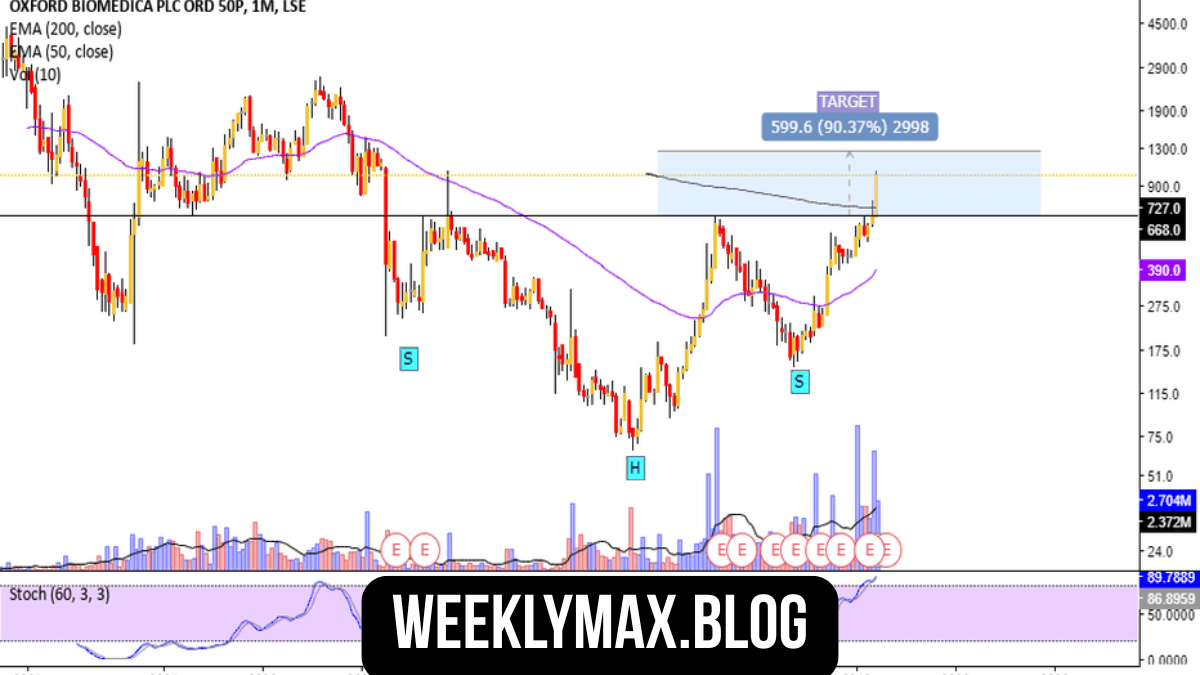What is Oxford Biomedica and why is its share price important?
Oxford Biomedica Share Price is one of the most well-known companies in the biotechnology sector, particularly recognized for its pioneering work in cell and gene therapy. Founded in the United Kingdom, it has grown into a leading global player that collaborates with pharmaceutical giants while also pursuing its own research and development. The company’s activities involve developing viral vector technologies, manufacturing platforms, and therapies that target diseases previously considered untreatable.
The share price of Oxford Biomedica is more than just a financial figure—it reflects investor sentiment, the company’s scientific achievements, regulatory approvals, revenue streams, and partnerships. For investors, analysts, and even patients who are following the progress of gene therapy, the stock price serves as a barometer of how the market values Oxford Biomedica’s potential.
Why do biotech investors pay close attention to Oxford Biomedica’s share price?
Biotechnology shares are often more volatile than traditional industries because they are tied to innovation, clinical trial results, and regulatory decisions. A single positive or negative announcement about a clinical study can send shares soaring or tumbling within hours. For Oxford Biomedica, the story is no different. When the company signs a partnership with a pharmaceutical leader or reports a successful manufacturing deal, the share price usually responds positively. On the other hand, delays, setbacks, or financial losses can trigger declines.
Investors are also aware that Oxford Biomedica Share Price plays in the high-growth field of gene therapy. With increasing global demand for advanced medicines, especially in areas such as oncology, rare genetic conditions, and regenerative medicine, the company stands in a unique position. This potential future growth makes its share price an attractive point of focus for those who believe in the long-term prospects of medical innovation.
How has Oxford Biomedica’s share price performed historically?
The history of Oxford Biomedica’s share price shows the typical journey of a biotech stock. Early years were marked by volatility and the struggle to secure consistent revenue. Over time, as the company developed new technologies and established partnerships with global pharmaceutical companies, investor confidence grew.
There have been moments of dramatic rises, often connected to breakthrough deals or recognition of Oxford Biomedica’s expertise in viral vector manufacturing. During the COVID-19 pandemic, for example, the company’s involvement in producing the AstraZeneca vaccine brought significant attention and uplift to its stock. However, as pandemic-related demand slowed and the global vaccine market stabilized, the share price experienced corrections.
Historical performance demonstrates that Oxford Biomedica’s stock does not move in a straight line. It reflects cycles of investor excitement, industry trends, and broader market conditions. For long-term investors, the challenge has been to ride through the volatility while maintaining faith in the company’s technological edge.
What are the key factors that influence Oxford Biomedica’s share price today?
The most important drivers of Oxford Biomedica’s stock performance can be divided into scientific, financial, and strategic factors. On the scientific side, success in developing therapies, securing patents, or demonstrating manufacturing excellence tends to inspire market confidence. Each step toward commercialization adds weight to the valuation.
Financially, revenue growth, cash reserves, profitability, and funding arrangements influence how investors view the stability of the company. Because biotech firms often require significant investment before becoming consistently profitable, investors watch closely to see how Oxford Biomedica manages its balance sheet.
Strategically, partnerships are central. The company works with some of the biggest names in pharmaceuticals, and every collaboration has implications for future earnings. For instance, securing a multi-year deal with a global drug maker can create a sense of security around Oxford Biomedica’s revenue streams, positively affecting the share price.
How do market trends in biotechnology affect Oxford Biomedica shares?
Oxford Biomedica’s share price is not shaped in isolation—it moves alongside the wider biotechnology industry. When investors are optimistic about biotech as a whole, due to advances in personalized medicine, artificial intelligence integration in drug discovery, or regulatory approvals in gene therapy, companies like Oxford Biomedica benefit. Conversely, when the biotech sector faces skepticism because of failed clinical trials, funding difficulties, or tighter regulations, Oxford Biomedica’s shares often feel the impact.
Additionally, global events such as pandemics, healthcare reforms, and government funding for medical innovation can shift the mood in biotech investing. As a UK-based company with international collaborations, Oxford Biomedica’s share price is also sensitive to currency fluctuations, trade policies, and economic outlooks.
Does investor sentiment play a big role in share price fluctuations?
Yes, sentiment plays a powerful role, particularly in biotech stocks. Investors often trade on expectations rather than just current financial performance. Oxford Biomedica’s share price can surge when investors anticipate breakthrough results, even before any commercial product is fully approved. On the flip side, doubts about research pipelines, leadership decisions, or financial sustainability can lead to sell-offs.
Sentiment is also influenced by media coverage, analyst recommendations, and even social media discussions among retail investors. In today’s interconnected financial world, a positive report or critical commentary can ripple quickly through the market and affect Oxford Biomedica’s valuation.
How do quarterly results impact Oxford Biomedica’s share price?
Quarterly and annual reports are milestones for the company. These financial updates provide clarity on revenue, expenses, partnerships, and research progress. If Oxford Biomedica announces higher-than-expected earnings, improved cash flow, or new deals, investors may reward the company with higher stock valuations. Conversely, disappointing results, mounting losses, or lack of progress can trigger declines.
Investors also look beyond numbers. They examine management’s commentary, future guidance, and pipeline updates. The language used in these reports can shape expectations and directly affect the share price trajectory in the following weeks.
Is Oxford Biomedica’s share price suitable for long-term investors?
Many investors view Oxford Biomedica as a long-term opportunity rather than a short-term trading stock. The reason lies in the nature of biotechnology, where therapies and platforms can take years to reach full commercial success. Long-term investors focus on the company’s position in the gene therapy landscape, the durability of its partnerships, and its ability to secure recurring revenue through manufacturing deals.
For those willing to handle volatility and maintain a patient outlook, Oxford Biomedica may be appealing. However, it requires confidence that the company will continue to innovate and remain competitive against global biotech rivals.
How does competition affect Oxford Biomedica’s share price?
Oxford Biomedica is not alone in the race for leadership in gene and cell therapy. Competitors from the United States, Europe, and Asia are also pursuing advanced therapeutic solutions. The competitive landscape affects investor perceptions because the market wants to know whether Oxford Biomedica can differentiate itself.
Its specialization in viral vector manufacturing gives it a unique edge, as many pharmaceutical companies prefer to outsource this complex process rather than build it in-house. However, if competitors achieve breakthroughs in efficiency, safety, or scalability, investors may worry about Oxford Biomedica’s long-term positioning, influencing the share price.
What role do partnerships and collaborations play in valuation?
Partnerships are at the heart of Oxford Biomedica’s business model. The company collaborates with major pharmaceutical and biotechnology firms, providing manufacturing expertise while also sharing in potential commercial rewards. Each new collaboration adds credibility and revenue potential, often translating into positive stock market movements.
Investors interpret these partnerships as signs of validation, suggesting that other industry leaders trust Oxford Biomedica’s technology. The more partnerships the company secures, the more diversified its income sources become, which can stabilize the share price even in volatile markets.
Could government policy or regulation influence Oxford Biomedica’s share price?
Yes, government policy and regulation are crucial. Since Oxford Biomedica operates in highly regulated environments, any changes in drug approval processes, clinical trial requirements, or manufacturing standards can have a direct effect. Policies related to healthcare funding, intellectual property protection, and pharmaceutical pricing also play roles in shaping future profitability.
Brexit and other political shifts have already demonstrated how external policies can affect biotech firms in the UK. Investors keep a close eye on these developments because they can either accelerate or hinder Oxford Biomedica’s global competitiveness.
What is the outlook for Oxford Biomedica’s share price?
The outlook is both exciting and uncertain, which is typical for biotechnology firms. On one hand, the global demand for cell and gene therapies is expanding rapidly, and Oxford Biomedica has positioned itself as a leader in manufacturing solutions that are critical to this growth. Its expertise in viral vectors gives it a sustainable niche that many larger companies depend upon.
On the other hand, the risks are real. Competition is fierce, the regulatory environment is demanding, and financial pressures are ongoing. Shareholders must be prepared for fluctuations while recognizing the potential for long-term appreciation if the company continues to execute effectively.
Frequently Asked Questions about Oxford Biomedica Share Price
Is Oxford Biomedica a profitable company today?
Oxford Biomedica has had years of operating losses due to heavy investment in research and infrastructure. Profitability depends on partnership revenues, licensing agreements, and manufacturing demand. While it has achieved profitable periods, it remains a company where future growth is often prioritized over immediate profits.
Why is the share price sometimes so volatile?
The volatility stems from the biotech sector’s reliance on trial results, regulatory approvals, and partnerships. A single piece of news can dramatically change investor expectations, creating sharp movements in the stock.
Does Oxford Biomedica pay dividends to shareholders?
As of now, Oxford Biomedica typically reinvests earnings back into research, development, and expansion. This means dividends are not the main attraction for investors—capital growth is the primary goal.
How can small investors approach Oxford Biomedica shares?
Small investors should treat Oxford Biomedica Share Price as a high-risk, high-reward stock. Diversification, patience, and awareness of the biotech sector’s nature are essential for those considering it.
What makes Oxford Biomedica unique compared to other biotech firms?
Its deep expertise in viral vector manufacturing distinguishes it. Many leading pharmaceutical companies rely on Oxford Biomedica’s capabilities to deliver advanced therapies, making it a central figure in the gene therapy supply chain.


